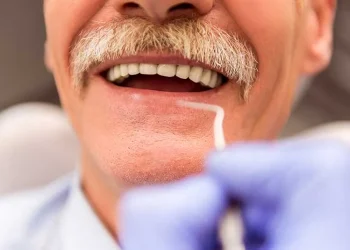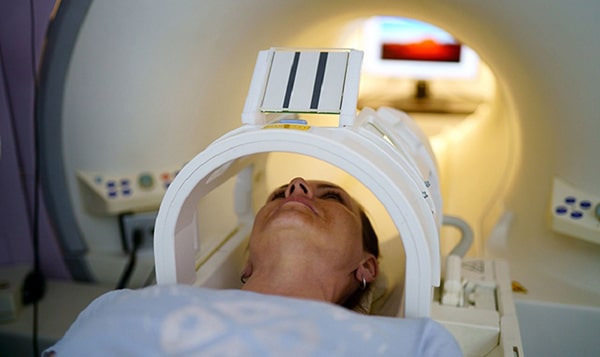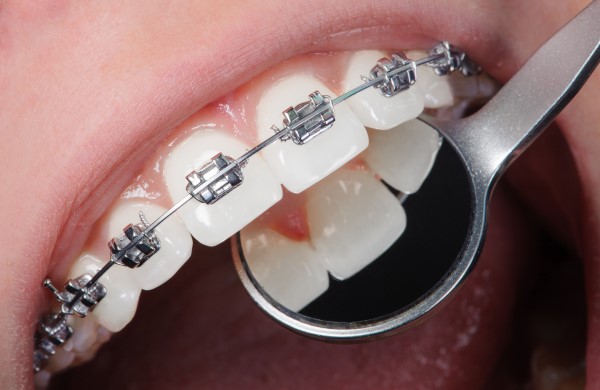Contents
Dental Implants on Patients with Osteoporosis
Osteoporosis is a condition that affects bone density, making bones brittle and weak. It is common in older adults, especially women. Dental implants are a popular tooth replacement option, but can they be used on patients with osteoporosis? In this blog post, we will explore the use of dental implants on patients with osteoporosis.
Effects of Osteoporosis on Dental Implants
What is Osteoporosis?
Osteoporosis is a medical condition that occurs when the density of bones decreases and the bone architecture becomes more porous, leading to the bones becoming brittle and weak.
This condition is more commonly observed in older adults, especially women who have undergone menopause, due to the decrease in estrogen levels that occurs during this phase. However, it can also occur in younger individuals with certain medical conditions or due to prolonged use of medications such as corticosteroids.
Osteoporosis is often referred to as a “silent disease” because there are often no visible symptoms until a bone fracture occurs. It is important to take preventative measures such as maintaining a balanced diet rich in calcium and vitamin D, engaging in regular physical activity, and avoiding smoking and excessive alcohol consumption to reduce the risk of developing osteoporosis. Treatment options include medication to increase bone density, hormone replacement therapy, and physical therapy to improve balance and prevent falls, which can be a common cause of fractures in individuals with osteoporosis.
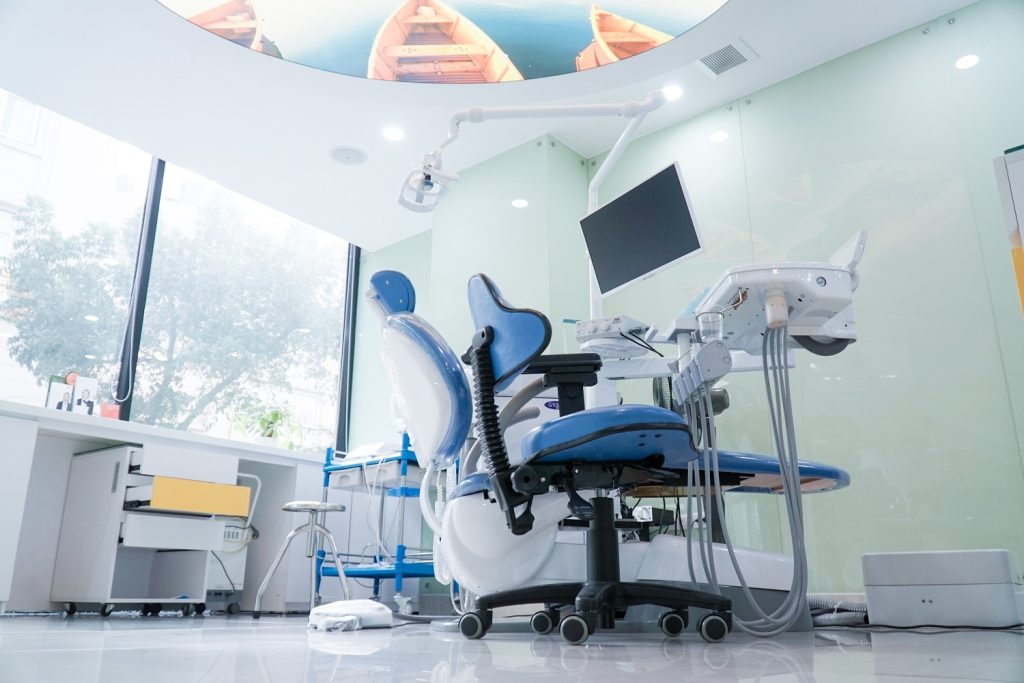
Does Osteoporosis Affect the Dental Implant Process?
Osteoporosis is a chronic condition that can have a negative impact on the success of dental implants. The disease causes a decrease in bone density, which can weaken the jawbone and make it difficult for the implant to fuse properly. This can lead to a host of complications, including implant failure or even implant loss.
In addition to affecting bone density, osteoporosis can also cause a decrease in saliva production, leading to dry mouth. Dry mouth can increase the risk of gum disease, which can further impact the success of dental implants. Furthermore, osteoporosis can also lead to periodontitis, a severe form of gum disease that can cause the gums to recede and expose more of the tooth, making it more difficult to place an implant.
Given these risks, it is important for dental professionals to properly assess patients for osteoporosis before performing dental implant procedures. Treatments for osteoporosis, such as calcium supplements and hormone therapy, may also be recommended to improve bone density and increase the chances of success for dental implants.
Can Patients with Osteoporosis have Dental Implants?
Despite the challenges posed by osteoporosis, dental implants can still be a viable option for tooth replacement. It is true that the condition weakens the bones, including the jawbone, which can make it difficult to support the implant. However, thanks to the advances in dentistry, there are several ways to overcome this obstacle.
One of the most common methods used to improve the chances of success in dental implant procedures is bone grafting. This procedure involves taking a small piece of bone from another part of the body, such as the hip or the chin, or using synthetic bone material, and placing it in the jawbone to supplement the existing bone structure and strengthen it. This additional bone material promotes the growth of new bone tissue, which can help the implant to be anchored more securely into the bone.
Although this method can increase the success rate of dental implants, it may also require additional healing time and involve more discomfort than other methods. However, the long-term benefits of having a strong and stable dental implant make the procedure worth considering for many patients with missing or damaged teeth.
Another approach to improve bone density and ensure successful dental implant surgery is through the use of medication. These medications, which are commonly used to treat osteoporosis, can also benefit dental implant patients with low bone density. The medication works by stimulating bone growth, which results in an increase in bone density. By increasing bone density, the jawbone becomes stronger and more capable of supporting the implant.
It is important to note that medication alone is not enough to ensure successful dental implant surgery. It is often recommended that medication is combined with a healthy diet and weight-bearing exercises to further promote bone growth and density. Additionally, regular dental check-ups and cleanings are recommended to ensure the longevity of the implant.
It is also notable that not all dental professionals are experienced in working with patients with osteoporosis. Therefore, it is crucial for patients to seek out a dental professional who has the necessary expertise and can recommend the best course of treatment. With the right care and attention, patients with osteoporosis can still achieve a healthy and functional smile with dental implants.
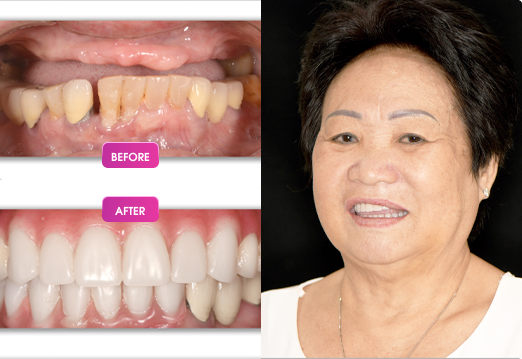
Notes for Patients with Osteoporosis When Having Dental Implants
Choosing a Dentist Specializing in Implant Dentistry
Implant dentistry is a relatively complex treatment that should be performed by a reputable dentist with a team of qualified doctors who can provide thorough advice on the condition of your teeth and the appropriate dental restoration schedule.
Additionally, it is important to choose a dentist with modern equipment that can effectively determine standard jaw bone density to help the implant process go smoothly and achieve the desired results.
Home Dental is an advanced implant treatment center that provides effective implantation procedures to hundreds of customers, receiving high praise from experts. At Home Dental, a team of highly qualified doctors devote significant effort towards planning the correct treatment to bring optimal results for each patient. Throughout the implantation process, patients are accompanied by a doctor who provides careful consultation, advice on healthcare and oral conditions, and closely monitors all stages of the treatment.
Moreover, Home Dental continually updates its system of advanced equipment imported from abroad, including laser machines, PRP machines to help with quick healing and pain reduction, Piezotome machines to reduce trauma, and CBCT film machines to survey the jawbone area. This ensures that customers receive an international standard implant procedure, providing maximum safety, and a smooth and gentle experience.
Examination and Diagnosis of Osteoporosis
Before undergoing dental implant surgery, patients with osteoporosis should consult with their doctor to evaluate the extent of their condition and determine if dental implants are a suitable option. While osteoporosis may pose challenges for the success of dental implants, it does not necessarily mean that they are not an option for all patients.
In fact, by collaborating with both their dentist and their doctor, patients can come up with an appropriate treatment plan that addresses their specific needs and medical condition. This may involve a range of treatments, including bone grafts or alternative implant materials, to ensure that the patient’s overall health and safety are prioritized.
Furthermore, it is important to note that dental implants offer numerous long-term benefits for patients, such as improved oral health and a more natural-looking smile. As such, it is worth taking the time to thoroughly explore all options and work with qualified professionals to ensure that the most effective and appropriate solution is found.
Follow Your Doctor’s Instructions for Dental Care and Calcium Supplements
After reviewing the results of your bone density test, your doctor will provide you with detailed instructions to ensure proper dental care and appropriate calcium supplements. The instructions will cover the recommended dosage, frequency, and duration of the supplements.
Your doctor may also include tips for maintaining a healthy diet and exercise routine to further improve bone quality and oral health. In addition, your doctor may suggest certain lifestyle changes, such as quitting smoking or limiting alcohol consumption, that can have a positive impact on your overall bone health.
It is essential that you follow these instructions strictly to achieve optimal bone quality and oral health. You should report any adverse side effects or complications to your doctor immediately. Failure to follow these instructions may compromise the success of dental implantation and increase the risk of implant failure or infection. Therefore, it is imperative that you prioritize your bone health and adhere to your doctor’s recommendations for a safe and effective dental implantation procedure.
In addition to following your doctor’s instructions, it is important to maintain regular appointments with your dentist to monitor your oral health and bone density. Your dentist can provide you with additional guidance on proper dental care and offer suggestions for improving your oral health.
Remember, taking care of your bones is a lifelong commitment that requires dedication and effort. By following your doctor’s recommendations for dental care and calcium supplements, maintaining a healthy diet and exercise routine, and making lifestyle changes as needed, you can improve your bone quality and oral health and ensure the success of your dental implantation procedure.
In general, dental implants are possible for individuals with osteoporosis. However, it is crucial to assess the condition of the bones and follow the doctor’s prescribed treatment plan. It is also important to select a reputable dental clinic with a team of qualified doctors and modern facilities. This will ensure a safe and satisfactory dental implantation process with sustainable results. If you have osteoporosis and are considering dental implants, contact Home Dental to get advice and be examined by our highly skilled dentists.


